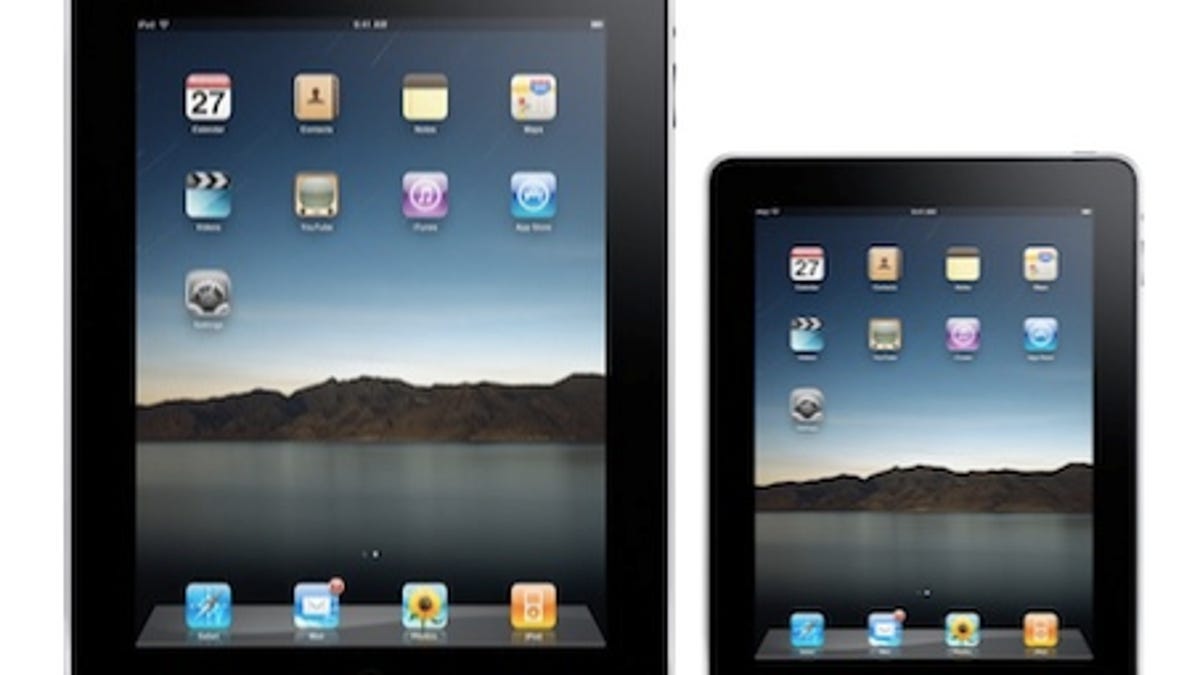Supplier chatter points to smaller 8-inch iPad
Apple is talking to component suppliers about an iPad with a smaller screen, the Wall Street Journal reports.

The supply chain--that gaggle of component makers behind the products people actually buy--is talking about a smaller iPad again.
On Tuesday, a report in The Wall Street Journal claimed that suppliers have shown Apple samples of a device with an 8-inch class screen.
Suppliers of the sample 8-inch class panels include AU Optronics and LG Display, according to the Journal.
This follows a CNET report--citing supply-chain sources--back in October when suppliers were yapping about a 7.85-inch screen.
If Apple commits to commercial production of a smaller iPad--which is unknown at this point--it would be a big step in expansion of the iPad line. To date, the iPad has been offered with a 9.7-inch screen only. And differences between models are limited to, for example, storage capacity and to networking--Wi-Fi only or Wi-Fi with 3G.
Reports of the smaller iPad follow a rash of speculation about a follow-on to the iPad 2--or so-called iPad 3. Rumors point to a March announcement of an iPad 3 with a 9.7-inch screen but boasting a much higher resolution than the iPad 2.
Amazon--whose 7-inch Kindle Fire has been a hit with about five million sold--is now rumored to be targeting a larger 9-inch model.
Updated on February 14 at 1:35 p.m. PST: adding additional information about 7.85-inch screen size as reported by CNET back in October.

